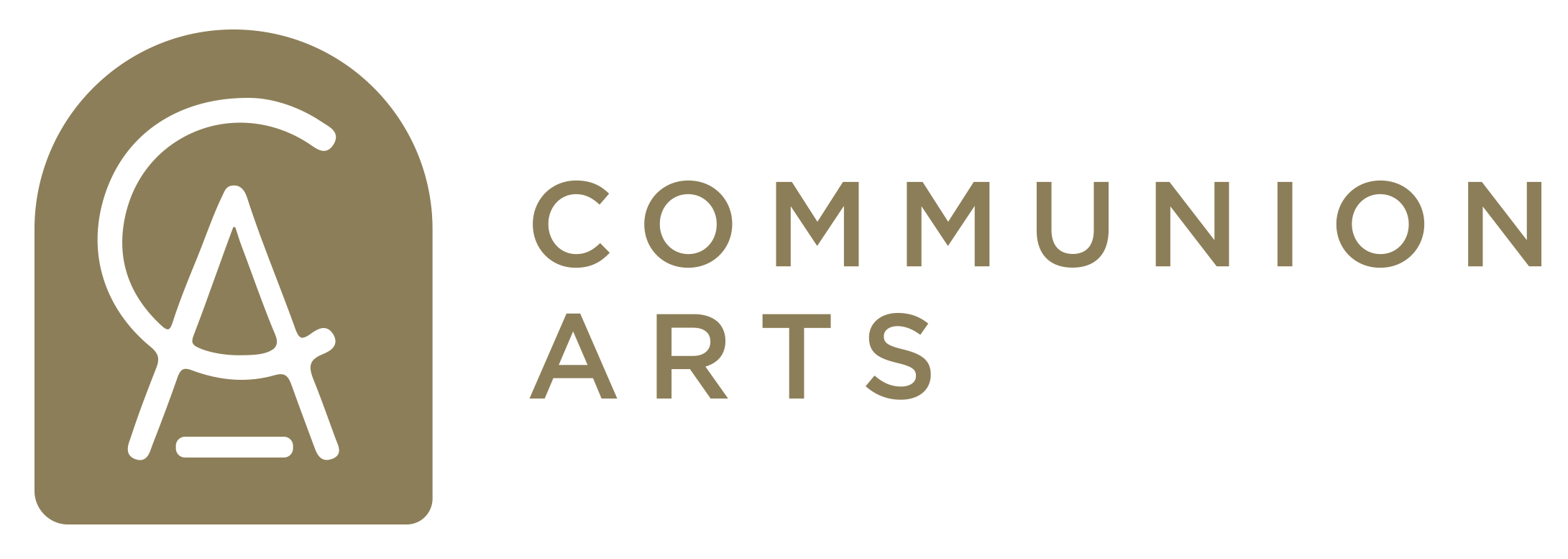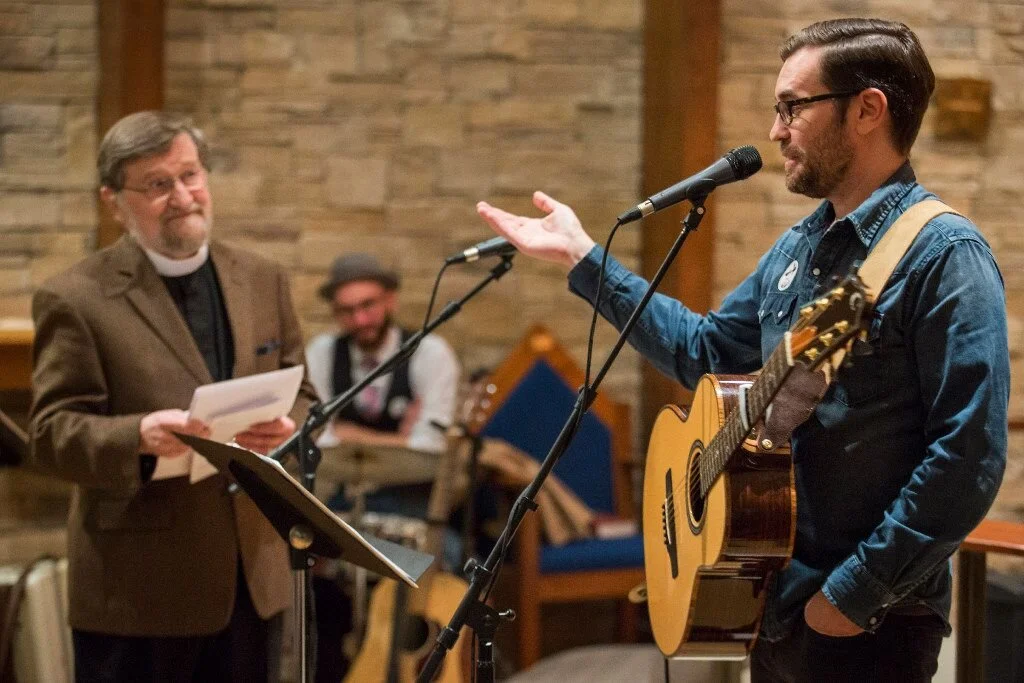Artist Feature | Ryan Flanigan
What first drew you to music and songwriting?
I was raised in a very musical church with a wonderful music minister who created every opportunity for all ages to sing. From as early as I can remember the hymnal was an integral part of our worship and formation. But Pastor Doug was also well-attuned to the rapidly growing worship chorus movement in the 80’s and 90’s. So we sang the best of the old and the new.
Doug’s wife Laury taught me piano from age 7 to 15. I composed my first solo piano piece when I was 11 years old and then roughly one per year. It was invigorating to create something out of seemingly nothing and to see how it affected people. It was a different experience, both for myself and the listener, than playing Mozart; this was my song, my story, and so in some small way I was in the company of composers like Mozart.
At summer camp in ’97, I witnessed for the first time a praise rock band on stage, leading Hillsong and other brand new worship songs. Inspired, I started a praise band in my youth group and, since I was already in the practice of composing my own songs, shifted my focus towards writing church music. I have been doing that ever since.
What does your creative process/rhythm look like?
My creative process has taken on many different forms over the years, but one common thread is drawing inspiration from actual events in my own life and community. I believe the best artists are deeply connected to what is happening around them—sometimes when no one else can see it—and are able to capture reality and reflect it back to the community through their work.
My first seven years as a composer was all music and no words. I had to convey something true without using words. I only started writing words because that was the common practice among worship songwriters. But it takes a lot out of me to write words. I have gradually learned that I am primarily a melodist. I can make better songs if I partner with gifted lyricists or source my words through pre-existing texts.
As far as frequency, in my most productive seasons I set aside one day a week to write. As a church music director and an introvert, Sundays take a lot out of me. Composition is a rhythm of rest for me, so I’ve made Mondays my creative writing days. In addition to my weekly discipline I attend songwriters feedback events quarterly and try to attend a couple songwriting retreats or workshops annually.
You've released music under your name and Liturgical Folk. How do you choose what goes to which project?
In 2014 I recorded a solo project called Fought & Fallen. It consists of seven songs that came out of an intense wilderness season in South Bend, IN. It made sense for this record to be released under my name, given its personal character. A publisher friend of mine listened to the music and, not really having a category for what he was hearing, named it “liturgical folk” music. I’d say the last two or three songs on the album definitely fit that classification.
In 2015, shortly after moving to Dallas, TX, I partnered with a retired priest and poet, the late Fr. Nelson Koscheski, to bring some new hymns into the world. At the same time, new to the Anglican tradition, I was setting all kinds of ancient prayers to music and using them in worship and at home in family prayer. Before long I had stockpiles of new settings and hymns, all very much fitting the “liturgical folk” genre.
With my publisher friend’s permission, I formally established Liturgical Folk, a music project of the Anglican Mission in America, and set out in 2016 to release six albums in three years. By God’s grace we did it! With Fr. Nelson’s passing in March 2019, we chose to put a bow on the music project. I don’t know if we will release any more albums under the name Liturgical Folk, but I won’t stop making liturgical folk songs. I hope others, after hearing our music, will begin to self-identify as liturgical folk artists and that the moniker will transition from our music project into a welcoming category.
I know with Liturgical Folk you tour with your family. What is one of your best memories from the road?
From 2017 through 2019 two families in two minivans embarked upon six mini-tours. 2019 was especially memorable, as we literally traveled coast to coast. Our last tour, which was our most extensive, ended in New York City the evening before Thanksgiving. We got to play in the historic chapel at St. George’s Episcopal Church in Manhattan. The next day, Thanksgiving Day, all five kids and four adults accomplished what would take most tourists an entire week to conquer.
What I will personally remember about those three years of special ministry was witnessing in the faces of concertgoers a fresh discovery of something both new and familiar, old and exciting. Admittedly, most people who attended our concerts had no idea what they were coming to. They only showed up because their pastor wanted them to catch a vision for this “ancient-future” kind of music or because their friend dragged them along. The average facial expression before the music began was what one might call skeptical or curious. Four to five songs into each concert there was a marked change in the faces of folks to a look of peace and delight. And by the end of the concert their expressions were usually full of excitement and possibility. We won them over. We showed them something new about the old. I’ll never forget that.
If you had to choose one record, one band, and one book that has had the most influence on you as a songwriter, what would they be?
I am horrible at answering these questions. Again, I am a melodist, so for better or worse most of my greatest influences have been subliminal. Hooks that I’ve imbibed here or there in a department store or restaurant. I actually really love 30’s and 40’s jazz and gospel music. I can’t point to a specific record or band. I can confidently say that stage musicals, such as Ragtime, Joseph, Phantom, Rent, and countless others, have probably had the biggest influence on me. Also, my dad would sing deep cuts from 60’s and 70’s folk and rock albums on car rides all the time, leaving a deep impression I’m sure. I have spent a lot of time listening to Billy Joel, Elton John, and Paul McCartney. Also, 90’s Vineyard music and Christian alternative bands on Tooth & Nail. Also, who in woke folk music hasn’t Sufjan Stevens touched? Finally, Ryan Delmore and John Barnett gave me permission to bring folk/Americana music into the church.
As far as books, mid-20th century British fiction, Namely Lewis, Tolkien, and Williams (and more recently Rowling) have had incalculable influence on my writing. Martin Luther’s Bondage of the Will turned most things upside-down in my life theologically. More recently, I’m pretty sure James K. A. Smith’s Desiring the Kingdom shifted me from a fundamental belief in the supremacy of words to an understanding that music itself has just as much power to convey truth.
What fuels your creativity?
You mean besides a perfectly brewed cup of coffee?
The two things that are sure to fuel my creativity are the Daily Office and the News. They go hand in hand. Ever since the start of the 2020 coronavirus pandemic my family has been praying Morning and/or Evening Prayer every day. As Anglicans we use the Book of Common Prayer (1979). The prayers themselves are beautiful and, depending on the News of the day, one particular prayer might strike me and spark a creative idea.
For example, as we were praying the Magnificat one morning, I found Mary’s words deeply convicting in light of all the political division, abuse of power, and human suffering around us. “He has cast down the mighty from their thrones and has lifted up the lowly. He has filled the hungry with good things, and the rich he has sent away empty.” Moved, I set the prayer to music verbatim. Now my family can sing it whenever we want, and, incidentally, my kids have memorized this lengthy part of Scripture.
Ever since Mike Brown Jr. was murdered by police in Ferguson, MO, I have made it a regular practice to write songs that call forth racial justice. Unfortunately, there is plenty of fodder for this in our world right now. I’ve written a handful of songs since the murder of George Floyd, and they all fit this description.
What are you working on right now?
Well, it seems what my immediate community needs right now more than my content creation is personal connection. (Thanks to Rich Kirkpatrick for dropping that line in a recent Worship Leader Magazine article.) I’ll always be composing music, but my greater focus right now is connecting with lonely, hurting parishioners, as well as joining local efforts to fight racial injustice. My songs will play a small role in the latter, as most meaningful movements are carried on sound waves. But I’m really stretching my pastoral muscles more than flexing my songwriting guns at present.



